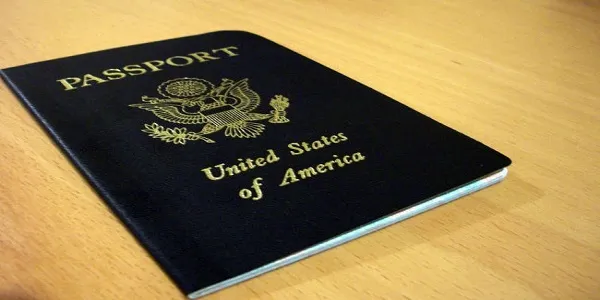Are you itching to explore the breathtaking landscapes of Canada, immerse yourself in its vibrant culture, or pursue new career opportunities? If so, you’re not alone! However, navigating the world of Canadian visas can feel like unraveling a complex puzzle. But fear not! In this blog post, we’ll be your guide as we unlock the secrets and reveal answers to your most common questions about Canadian visas. Whether you’re dreaming of a temporary adventure or seeking a long-term relocation plan, get ready to uncover all the vital information you need to turn those dreams into reality. So let’s dive in and discover everything you’ve ever wanted to know about securing your passage into the Great White North! CANADA VISA FAQ
Introduction: The Importance of Understanding Canadian Visas
Canada is known for its diverse landscapes, vibrant cities, and welcoming culture. It comes as no surprise that many people from around the world dream of visiting or even immigrating to Canada. However, before embarking on your journey to this beautiful country, it is crucial to understand the Canadian visa system.
A visa is an official document issued by a government that allows individuals to enter, stay, or work in a foreign country for a specific period. In other words, it acts as permission to travel and enter Canada. Obtaining the right visa can make all the difference between a smooth and enjoyable trip versus one filled with stress and complications.
Here are some reasons why understanding Canadian visas is essential:
1. Entry into Canada
The most obvious reason for understanding Canadian visas is that without a valid visa, you will not be allowed entry into the country. Whether you are planning to visit Canada for tourism purposes or seeking employment opportunities, having the right visa is crucial. CANADA VISA FROM AUSTRALIA
Additionally, different types of visas have different criteria and requirements for eligibility. Therefore, understanding which visa category applies to your situation will ensure you have all the necessary documents and meet all the requirements before applying.
2. Avoiding Delays and Rejections
Applying for a Canadian visa can be a time-consuming process with strict guidelines and procedures that must be followed precisely. Failing to understand these requirements can result in delays or even rejection of your application.
What is a Visa?
A visa is an official document issued by a country’s government allowing foreign nationals to enter, stay or work in that country for a certain period of time. It serves as a temporary authorization and must be obtained before traveling to the destination country.
In Canada, visas are typically categorized into two types: temporary resident visas (TRVs) and permanent resident visas (PRVs). TRVs are required for short-term stays such as tourism, business trips, or study periods under six months. On the other hand, PRVs are for individuals who wish to immigrate to Canada permanently.
The process of obtaining a visa can be complex and varies depending on the type of visa you need. However, there are some general requirements that apply to all types of Canadian visas:
1. Valid passport: Your passport must be valid for at least six months beyond your intended date of departure from Canada.
2. Completed application forms: You will need to fill out and submit relevant application forms depending on the type of visa you are applying for. These forms can usually be found online or at the nearest Canadian embassy or consulate.
3. Proof of financial support: As part of the application process, you will need to provide evidence that you have enough funds to support yourself during your stay in Canada.
4. Medical examination: Depending on your nationality and intended length of stay in Canada, you may be required to undergo a medical examination before your visa is approved.
Temporary Resident Visas
– Temporary Resident Visas, also known as visitor visas, are required for individuals who wish to visit Canada for a temporary purpose such as tourism, visiting family or friends, or attending business meetings.
– These visas are usually valid for a period of six months but can be issued for longer periods in certain situations. They allow the holder to enter and stay in Canada for the specified period of time.
– To apply for a Temporary Resident Visa, you will need to provide proof of your purpose of visit, proof of financial support to cover your expenses during your stay in Canada, and proof that you intend to return to your home country after your visa expires.
– Depending on your country of citizenship, you may also be required to provide biometric information (fingerprints and photograph) as part of the application process.
– The processing time for Temporary Resident Visa applications varies depending on the location where you submit your application. It can take anywhere from a few weeks to several months. It is recommended to apply well in advance of your planned travel dates.
– In some cases, visitors may be exempt from needing a Temporary Resident Visa. This includes citizens from countries that have visa-exempt agreements with Canada or those who hold a valid Electronic Travel Authorization (eTA).
– If you are currently residing in the United States and hold a valid US non-immigrant visa (such as H1B or L1), you may also be eligible to enter Canada without obtaining a separate Temporary Resident Visa. However, it is always
Student Visas
Student Visas are an essential part of the process for international students who wish to study in Canada. These visas allow individuals to enter and remain in the country for a period of time, specifically for the purpose of studying at a designated educational institution. In this section, we will delve into the details of student visas in Canada and answer some of the most common questions that arise.
1. Who needs a student visa?
Any foreign national who wishes to study in Canada for more than six months is required to obtain a student visa. This includes both academic and vocational programs at designated learning institutions (DLIs) across the country.
2. How do I apply for a student visa?
The first step is to secure an acceptance letter from a DLI in Canada. Once you have been accepted, you can then apply for your student visa through Immigration, Refugees and Citizenship Canada (IRCC) online or by paper application. You will need to provide supporting documents such as proof of acceptance, financial support, and medical examinations along with your application.
3. What are the requirements for obtaining a student visa?
Apart from securing acceptance from a DLI, there are several other requirements that must be met in order to obtain a Canadian student visa:
– Proof of financial support: You must be able to demonstrate that you have enough funds to cover your tuition fees, living expenses and return transportation.
– Medical examination: Some students may be required to undergo medical examinations depending on their country of origin.


